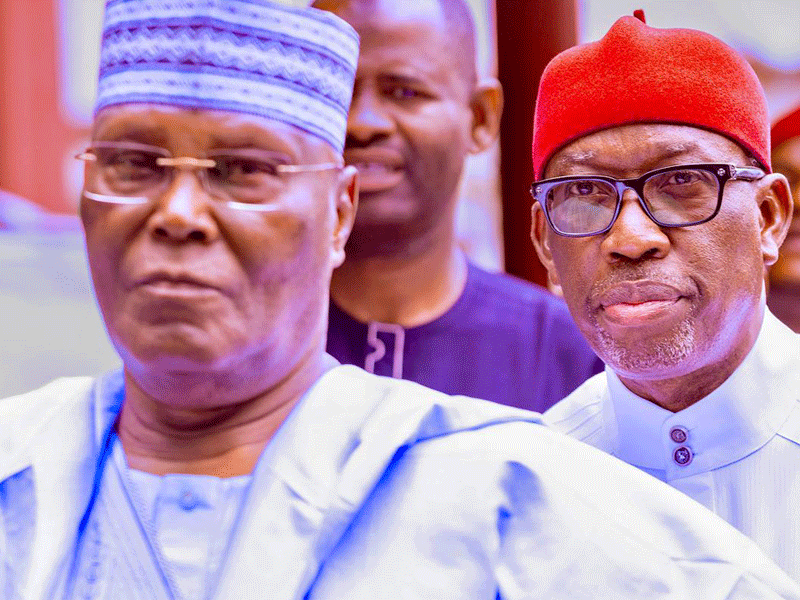
In a candid conversation that pulled back the curtain on Nigerian politics, former Delta State Governor Dr. Ifeanyi Okowa shared a moment of raw honesty: he regrets his decision to contest as the vice-presidential candidate in the 2023 elections. The revelation came during an interview on Arise Television, where he admitted that his acceptance of the People's Democratic Party (PDP)’s nomination ran counter to the prevailing political sentiment in his home state.
“Looking back, I now realize I should have aligned with the desires of my people,” Okowa said, referencing the general discomfort in Delta State over another northern presidency.
This wasn’t just political posturing. It was a reflection—possibly overdue—on a decision that stirred unease among constituents and sparked debate within his party.
A Disconnect Between Candidate and Constituents
During the campaign trail, Okowa said he could sense the disapproval from his base. Voters in Delta State, he noted, were growing increasingly weary of power remaining in the North after years of regional imbalance.
Yet the die had been cast.
The PDP had made its decision at the national level, nominating Atiku Abubakar as its presidential flagbearer and Okowa as his running mate. For Okowa, stepping into that role felt more like fulfilling a political obligation than acting on the pulse of his people.
Internal Party Turmoil and a Calculated Departure
Okowa’s political journey took another sharp turn when he announced his move from the PDP to the All Progressives Congress (APC)—a shift that ignited criticism, particularly from former Senate President Bukola Saraki. Saraki questioned Okowa's political consistency, pointing to what he viewed as opportunism.
Okowa didn’t hesitate to respond.
“I find it surprising that Senator Saraki would throw stones from a glass house. He’s switched parties multiple times himself,” Okowa retorted, defending the strategic nature of his defection.
He explained that the decision wasn’t a solo maneuver but the outcome of high-level consultations among Delta State’s political heavyweights. According to him, it became clear that the PDP’s internal fractures had grown too wide to bridge.
Signs the PDP Was Losing Its Way
Cracks in the PDP's foundation weren’t hard to spot. Okowa highlighted ongoing infighting, leadership uncertainty, and the failure of governors within the party to unify under a coherent plan. In his view, these were clear indicators that the PDP was unprepared to mount a serious challenge in the 2027 general elections.
“When you see a party divided at the top, with no clear strategy or unity, you know it’s time to reconsider your political home,” he said.
He emphasized that his switch wasn’t out of convenience but survival—a necessary move to remain politically relevant and aligned with his state’s evolving expectations.
Looking Ahead to 2027
Okowa’s political recalibration speaks to a broader trend in Nigerian politics, where loyalty to party lines is increasingly being overshadowed by regional priorities and strategic alliances. As the 2027 elections inch closer, it’s becoming clear that political realignments like Okowa’s could become more common—and more consequential.
Takeaway:
What’s clear from Okowa’s reflections is that political decisions—especially at the national level—can no longer afford to ignore grassroots sentiment. As Nigeria’s electorate becomes more vocal and politically aware, politicians like Okowa are finding that authenticity and regional loyalty may matter more than party hierarchy.
